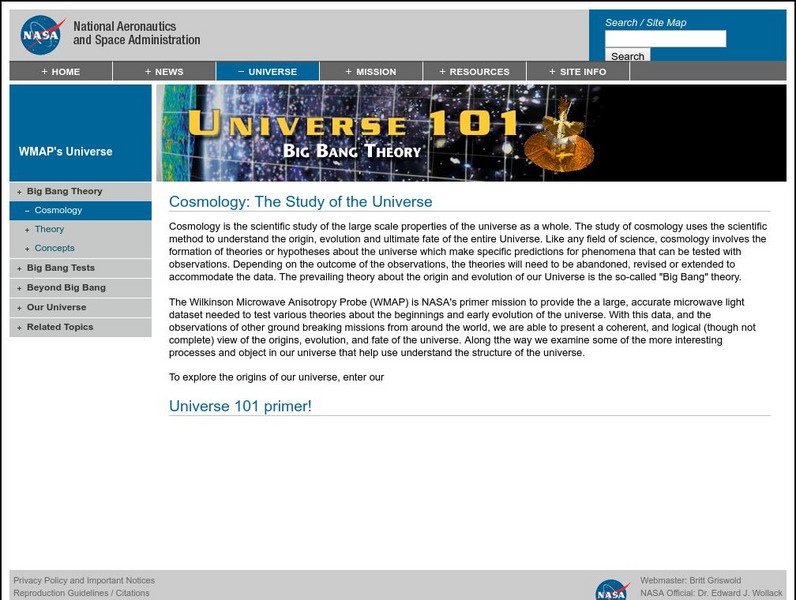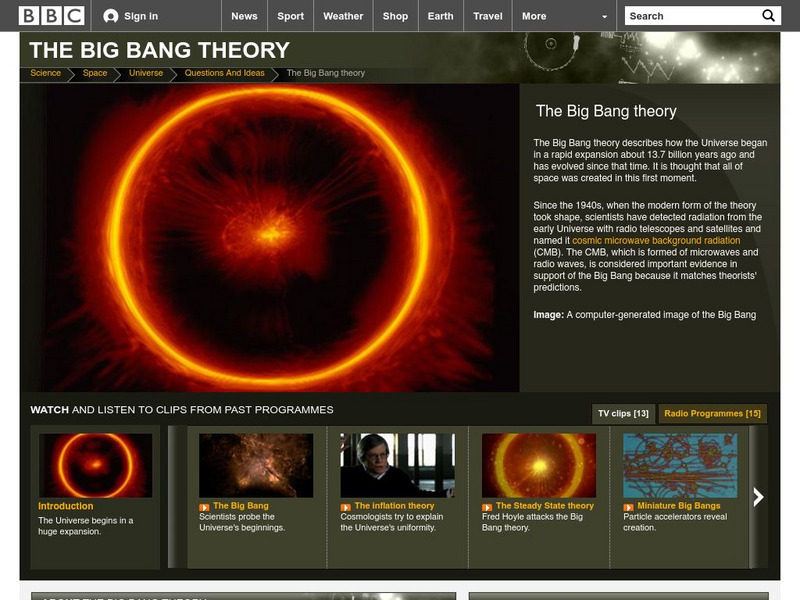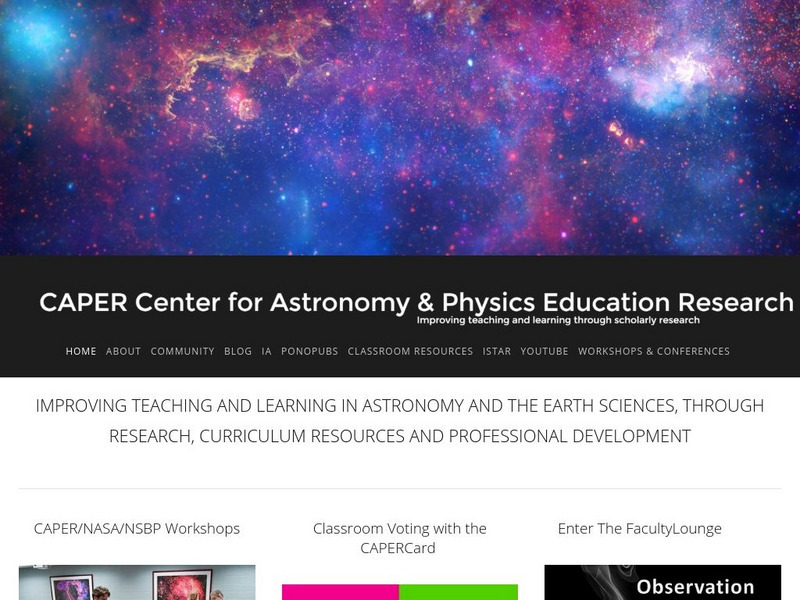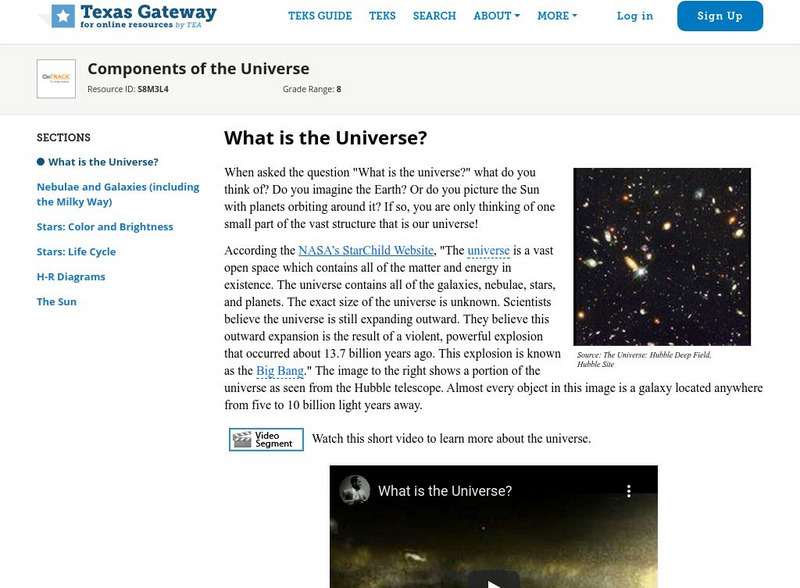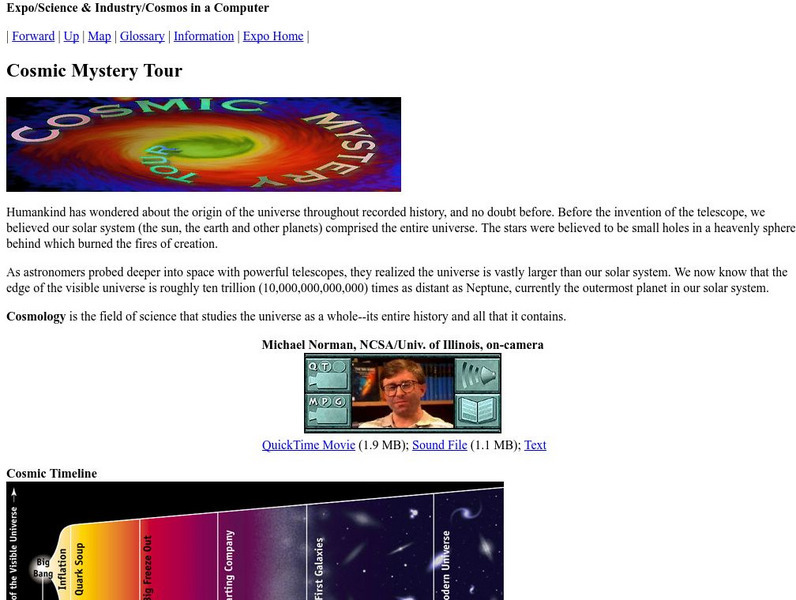NASA
Nasa: Universe 101: Big Bang Theory: Big Bang Cosmology
Provides a brief explanation of the Big Bang Theory and the two theories on which it is based - the theory of general relativity and the cosmological principle. Links to a related page with more detailed information about the Big Bang...
NASA
Nasa Cosmology: The Study of the Universe
Cosmology is the study of the "large scale properties of the universe as a whole." In this set of sites, NASA provides information on the Big Bang Theory in a simplified language. The beginning, evolution, structure, fluctuations and...
Georgia Department of Education
Ga Virtual Learning: Cosmology
This interactive module will help students understand cosmology. Learn about the standard cosmological model and explore if life is possible in other places besides the Earth.
PBS
Nova: History of the Universe
This interactive timeline provides information on the big bang as well as other major events of universe evolution. It also provides predictions about the universe's future.
American Museum of Natural History
American Museum of Natural History: Profile: Georges Lemaitre
Find out about the life and work of the father of the Big Bang theory, Georges Lemaitre. This article describes the origin of the cosmology theory and its growing acceptance among scientists. This is an excerpt from COSMIC HORIZONS:...
Other
American Institute of Physics: Ideas of Cosmology: Big Bang or Steady State?
Find out about the Steady State Theory of the origin of the universe. Learn about the scientific thinking and historical findings supporting this theory which states that new matter is continuously being created.
TED Talks
Ted: Ted Ed: The Beginning of the Universe, for Beginners
How did the universe begin and how is it expanding? CERN physicist Tom Whyntie shows how cosmologists and particle physicists explore these questions by replicating the heat, energy, and activity of the first few seconds of our universe,...
PBS
Pbs Teachers:origins Back to the Beginning
This hour long program by NOVA is split into six segments and examines a issues influencing scientists' current understanding of how the universe was formed. This includes The Big Bang and its lasting effects.
BBC
Bbc: Origin of the Universe
Try this introduction to ideas about how the universe began and how it might end. Topics include; the big bang and its echoes, antimatter, and inflation/expansion of the universe.
Other
Montana State Univ.: Expanding Universe (Lesson Plan)
This site has a lesson plan in which students gather evidence supporting the Big Bang Theory using a balloon model of the expanding universe.
Other
The Astronomy Cafe
NASA scientist Sten Odenwald calls this his "web site for the astronomically disadvantaged." Do you have lots of questions about space that you can't seem to get answers to? Would you like to learn about a career in astronomy, Big Bang...
PBS
Pbs Learning Media: Relativity and the Cosmos
This illustrated essay from the NOVA Web site introduces the basic concepts of Einstein's General Theory of Relativity and what we know about cosmology as a result.
Texas Education Agency
Texas Gateway: What Is the Universe?
The following tutorial is an explanation of what the universe is composed of.
University of Illinois
University of Illinois: Cosmic Mystery Tour
This multimedia tour is extremely dense with information about the origin of the universe. There are videos and simulations to assist with understanding, but it is definitely for advanced students.
Khan Academy
Khan Academy: Gallery: How Did Our Understanding of the Universe Change?
Understand how our view of cosmology has evolved by looking through different views of the Universe and zoom in on the light from distant stars on this site.

